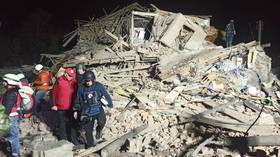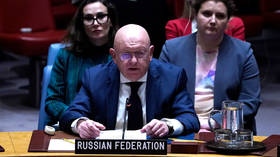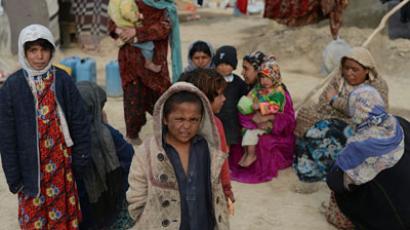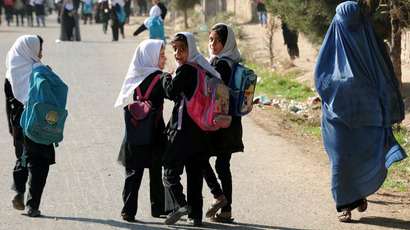Almost 100 Afghan schoolgirls poisoned in suspected gas attack
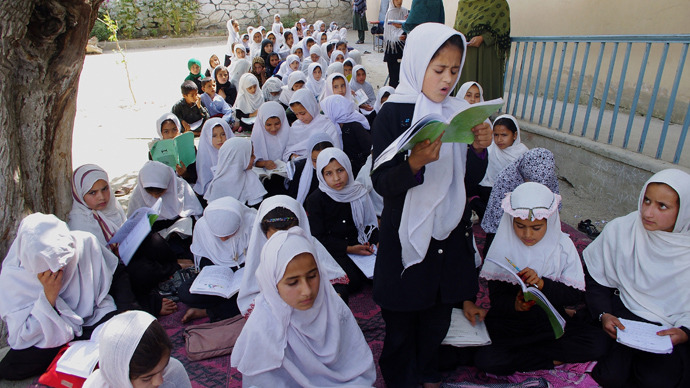
Some 97 girls from two schools in northern Afghanistan have reportedly been hospitalized after falling sick as a result of suspected gas poisoning.
In Maimana, the capital of Faryab province, a total of 77 girls
from the same school were taken to hospital on Saturday afternoon
after they fell ill, Afghan Pajhwok news agency reported on
Sunday.
“When the girls started falling unconscious, our teacher saw a
man fleeing to the school’s orchard,” the agency quoted one
of the students from the Jamshidi School. The girls also asked
the government to step up security around schools and punish
those behind “poisoning children.”
Another similar incident occurred the same day in the town of
Behsud, where 20 girls in a local secondary school fell ill for
unknown reason. All of them were also taken to hospital for
treatment - their condition is non-threatening.
Police, who searched the building, said they found no suspicious
objects that could cause health problems among the girls. They do
not rule out heat and the unhygienic conditions that the children
endure, as a reason.
However, one of the girls who fell sick said that there was “bad
smell” in the classroom when they got there in the morning and
just an hour later several girls fainted. She pointed out that
serious attention is given to cleanliness in her school.
Education Director Abdul Ghafoor linked the illness to fears
among schoolchildren about gas attacks.
These two incidents are the latest in a string of suspicious
cases when dozens of girls were simultaneously falling sick.
Similar cases were reported in May in Faryab and Balkh provinces
where 80 and 150 girls respectively fell ill after alleged gas
attacks on their schools.
In April, 74 girls were hospitalized when they became ill after
noting a gas smell in the air in their school in the Taluqan, the
capital of the Takhar Province. Four poisoning attacks in girls’
schools hit the province last year, prompting local officials to
order the head teachers to stay at school until late, to test the
water for contaminates and for staff to search the grounds for
suspicious looking objects.
Militants who oppose giving girls the right to education have
been blamed for the alleged poisonings. However, the Taliban
denied their involvement in the attacks, saying they “strongly
condemn” such actions, vowing to punish those behind them,
the movement’s spokesman Zabihullah Mujahid told the BBC earlier
in the week.
Women in Afghanistan got back basic rights after the Taliban were
ousted in 2001. Females, especially in the capital Kabul,
returned to schools – which they were banned from during the
Taliban regime in 1996-2001. Now, as the Western coalition forces
prepare to withdraw their forces, it is feared that the situation
may get worse again.



